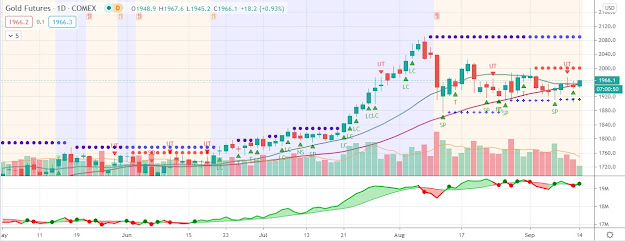The primary beneficiaries of a third round of quantitative easing (QE3)
The primary beneficiaries of a third round of quantitative easing
(QE3) by the Federal Reserve would be “money substitutes and
Treasuries,” according to analysts at Citigroup.
In a note to clients – which posted – Citigroup argued that the positive impact from QE3 on the broader financial markets would be significantly less than from the prior rounds of money printing.
“There are several major differences between QE3 now and past QE,” the firm began. “The one that is least remarked on is that the world outside the US is much less attractive now than in March 2009 or August 2010 when previous QEs were announced. In earlier QEs, EM was much more attractive, having shrugged off the debt crisis, there was an attractive destination for the liquidity the Fed was injecting into the global economy. Now the term ‘global leadership’ is linked to the US with its 2% (plus or minus) growth rate, and pessimism over Chinese, Brazilian, Indian and other major EM economies. So the downside risk is that the new liquidity sloshes around the banking system rather than being used for investment abroad.”
Citigroup went on to say that “We are struck by the somewhat skeptical reaction of investors and colleagues to the Fed’s analysis of the benefits from past rounds of QE. In particular the Fed’s benefit calculation explicitly assumes that the level of stimulus is a function of the size of the Fed’s balance sheet, so keeping the Fed’s balance sheet fixed would not result in any diminution of stimulus.”
As a result, if the Fed were to not announce any expansion to its balance sheet, “Most clients and traders feel that rates would back up significantly,” the firm noted. “In that world, subsequent rounds of QE just keep rates where they are rather than lower them and the cumulative benefits are much less pronounced.”
Therefore, “There is a strong view in markets that 1) the Fed have to do a big QE, given the expectations that have been built up, and 2) the added liquidity will have a marginal effect.”
Citigroup concluded by asserting that “This raises the risk that the assets that will benefit are those sensitive to liquidity, such as money substitutes and Treasuries, rather than assets that are sensitive to real business cycle expansion.”
Although the firm did not explicitly mention gold, thousands of years of history suggest that the yellow metal is the asset which best fits the description of a “money substitute.”
In a note to clients – which posted – Citigroup argued that the positive impact from QE3 on the broader financial markets would be significantly less than from the prior rounds of money printing.
“There are several major differences between QE3 now and past QE,” the firm began. “The one that is least remarked on is that the world outside the US is much less attractive now than in March 2009 or August 2010 when previous QEs were announced. In earlier QEs, EM was much more attractive, having shrugged off the debt crisis, there was an attractive destination for the liquidity the Fed was injecting into the global economy. Now the term ‘global leadership’ is linked to the US with its 2% (plus or minus) growth rate, and pessimism over Chinese, Brazilian, Indian and other major EM economies. So the downside risk is that the new liquidity sloshes around the banking system rather than being used for investment abroad.”
Citigroup went on to say that “We are struck by the somewhat skeptical reaction of investors and colleagues to the Fed’s analysis of the benefits from past rounds of QE. In particular the Fed’s benefit calculation explicitly assumes that the level of stimulus is a function of the size of the Fed’s balance sheet, so keeping the Fed’s balance sheet fixed would not result in any diminution of stimulus.”
As a result, if the Fed were to not announce any expansion to its balance sheet, “Most clients and traders feel that rates would back up significantly,” the firm noted. “In that world, subsequent rounds of QE just keep rates where they are rather than lower them and the cumulative benefits are much less pronounced.”
Therefore, “There is a strong view in markets that 1) the Fed have to do a big QE, given the expectations that have been built up, and 2) the added liquidity will have a marginal effect.”
Citigroup concluded by asserting that “This raises the risk that the assets that will benefit are those sensitive to liquidity, such as money substitutes and Treasuries, rather than assets that are sensitive to real business cycle expansion.”
Although the firm did not explicitly mention gold, thousands of years of history suggest that the yellow metal is the asset which best fits the description of a “money substitute.”




Comments
Post a Comment